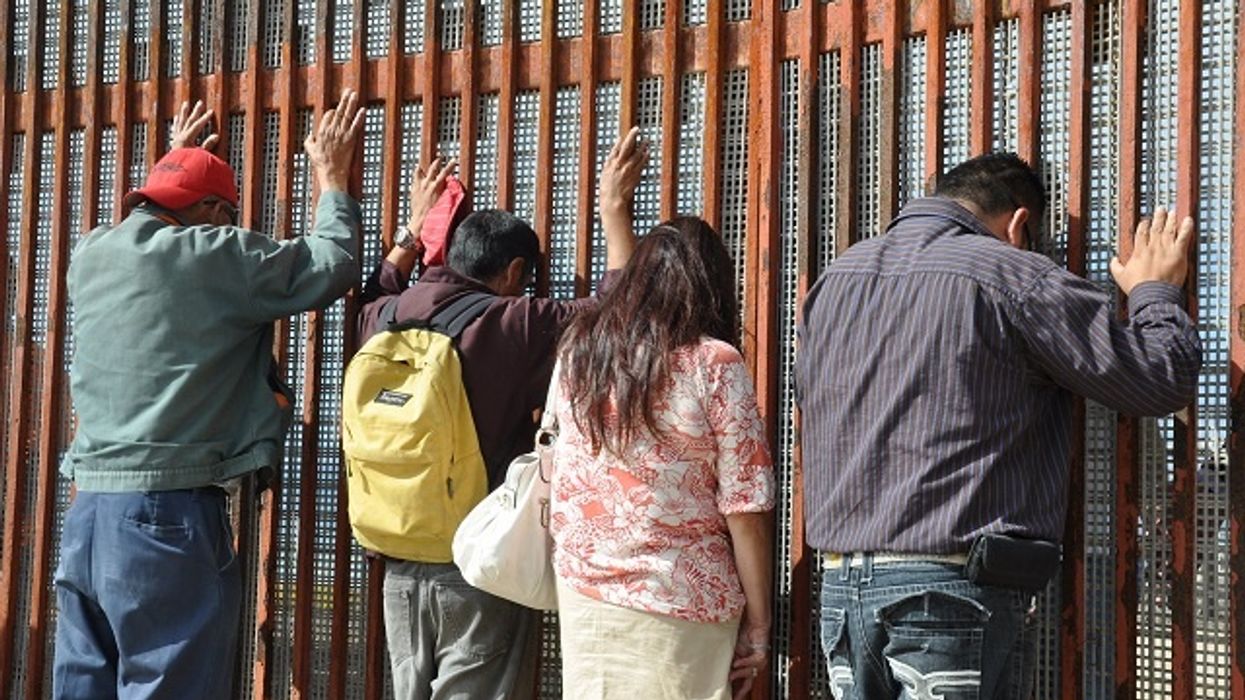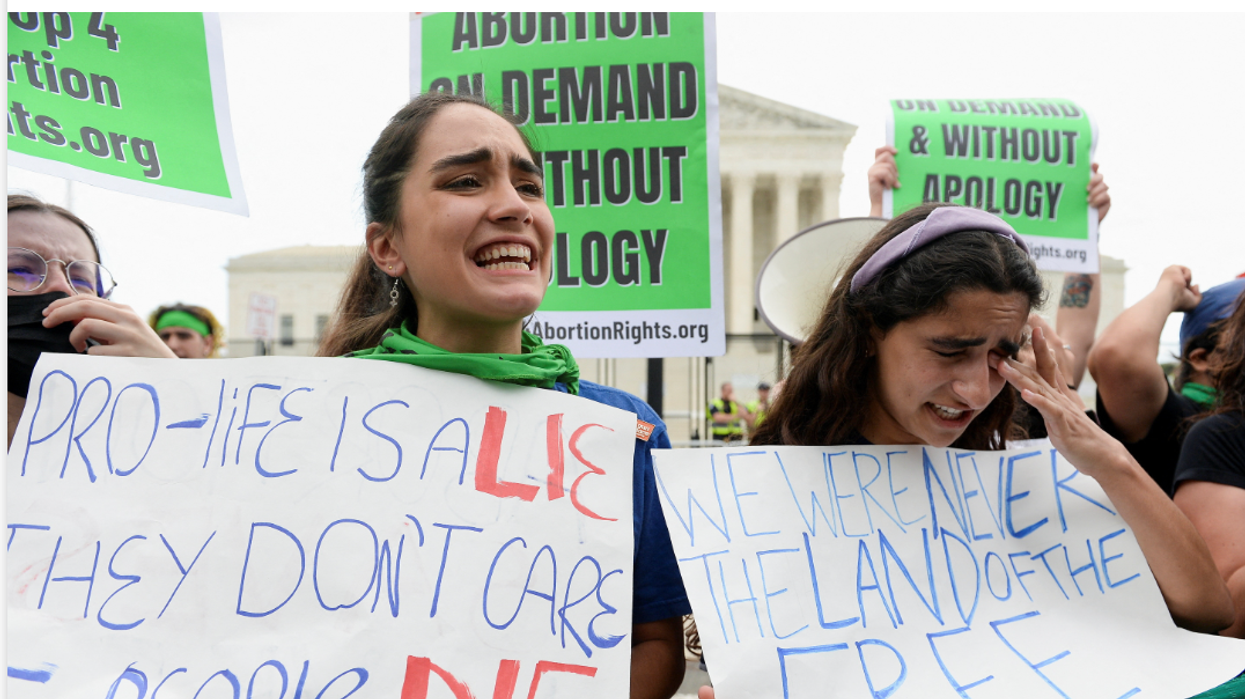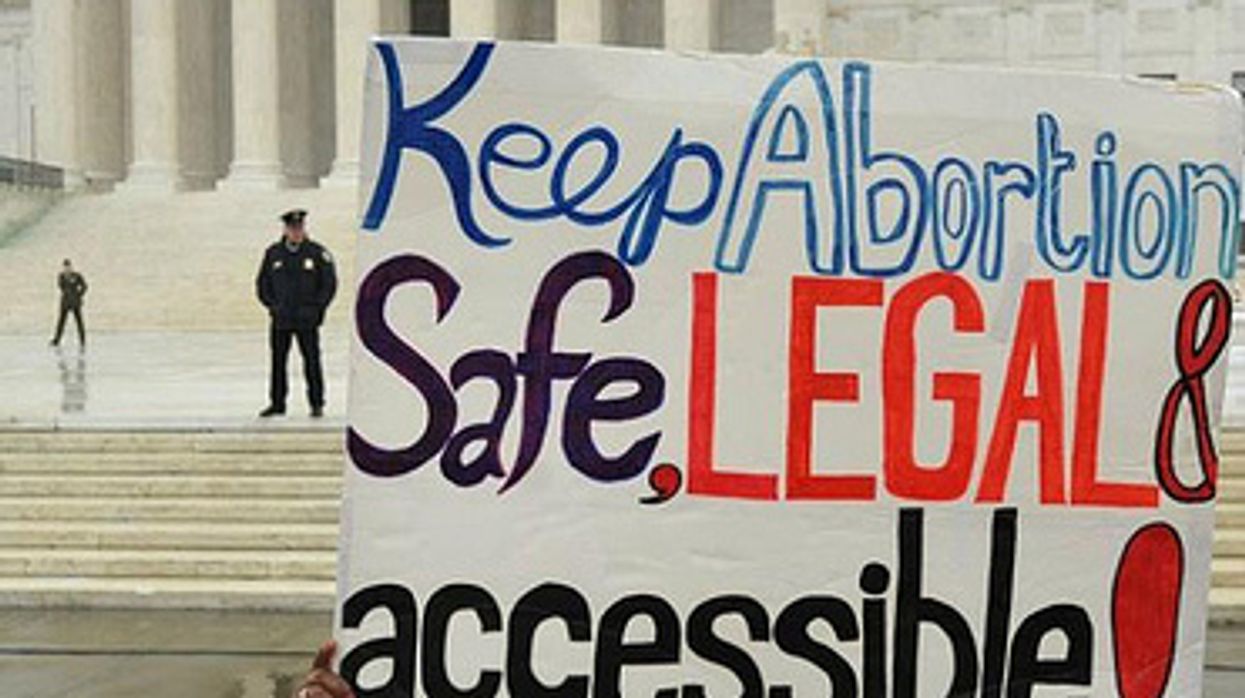With little more than six months until Election Day, Donald Trump is preparing for an “authoritarian” presidency, and a massive, multi-million dollar operation called Project 2025, organized by The Heritage Foundation and headed by a former top Trump White House official, is proposing what it would like to be his agenda. In its 920-page policy manual the word “abortion” appears nearly 200 times.
Trump appears to hold a more narrow grasp of the issue of abortion, and is holding on to the framing he recently settled on, which he hoped would end debate on the issue after the U.S. Supreme Court overturned Roe v. Wade. One day before the Arizona Supreme Court ruled an 1864 law banning abortion was still legal and enforceable, Trump declared states have total control over abortion and can do whatever they like.
Despite the results of that framing, Trump is sticking with that policy.
In a set of interviews with TIME‘s Eric Cortellessa, published Tuesday, the four-times indicted ex-president said he would not stop states from monitoring all pregnancies within their borders and prosecuting anyone who violates any abortion ban, if he were to again become president. He also refused to weigh in on a nationwide abortion ban or on medication abortion.
Recently, Trump backed away from endorsing a nationwide abortion ban, but in the past he has said there should be “punishment” for women who have abortions. The group effectively creating what could become his polices, The Heritage Foundation and its Project 2025, fully support a ban on abortion.
The scope of the TIME interviews was extensive.
“What emerged in two interviews with Trump, and conversations with more than a dozen of his closest advisers and confidants, were the outlines of an imperial presidency that would reshape America and its role in the world,” Cortellessa writes in his article.
“To carry out a deportation operation designed to remove more than 11 million people from the country, Trump told me, he would be willing to build migrant detention camps and deploy the U.S. military, both at the border and inland. He would let red states monitor women’s pregnancies and prosecute those who violate abortion bans. He would, at his personal discretion, withhold funds appropriated by Congress, according to top advisers. He would be willing to fire a U.S. Attorney who doesn’t carry out his order to prosecute someone, breaking with a tradition of independent law enforcement that dates from America’s founding.”
TIME’s Cortellessa also notes that Trump “is weighing pardons for every one of his supporters accused of attacking the U.S. Capitol on Jan. 6, 2021, more than 800 of whom have pleaded guilty or been convicted by a jury. He might not come to the aid of an attacked ally in Europe or Asia if he felt that country wasn’t paying enough for its own defense. He would gut the U.S. civil service, deploy the National Guard to American cities as he sees fit, close the White House pandemic-preparedness office, and staff his Administration with acolytes who back his false assertion that the 2020 election was stolen.”
On abortion, Trump has repeatedly bragged he personally ended Roe v. Wade, which was a nearly 50-year old landmark Supreme Court ruling that found women have a constitutional right to abortion, and by extension, bodily autonomy.
But Trump has also “sought to defuse a potent campaign issue for the Democrats by saying he wouldn’t sign a federal ban. In our interview at Mar-a-Lago, he declines to commit to vetoing any additional federal restrictions if they came to his desk. More than 20 states now have full or partial abortion bans, and Trump says those policies should be left to the states to do what they want, including monitoring women’s pregnancies. ‘I think they might do that,’ he says.”
“When I ask whether he would be comfortable with states prosecuting women for having abortions beyond the point the laws permit, he says, ‘It’s irrelevant whether I’m comfortable or not. It’s totally irrelevant, because the states are going to make those decisions.’ President Biden has said he would fight state anti-abortion measures in court and with regulation,” Cortellessa adds.
Trump in his TIME interview continued to hold on to the convenient claim as president he would have absolutely nothing to do with abortion.
But “Trump’s allies don’t plan to be passive on abortion if he returns to power. The Heritage Foundation has called for enforcement of a 19th century statute that would outlaw the mailing of abortion pills. The Republican Study Committee (RSC), which includes more than 80% of the House GOP conference, included in its 2025 budget proposal the Life at Conception Act, which says the right to life extends to ‘the moment of fertilization.’ I ask Trump if he would veto that bill if it came to his desk. ‘I don’t have to do anything about vetoes,’ Trump says, ‘because we now have it back in the states.'”
That’s inaccurate, if a national abortion ban, or any legislation on women’s reproductive rights, comes to his desk. And they will, if there’s a Republican majority in the House and Senate.
Brooke Goren, Deputy Communications Director for the Democratic National Committee (DNC) writes, “In the same interview, Trump:
– Repeatedly refuses to say he wouldn’t sign a national ban
– Left the door open to signing legislation that could ban IVF
– Stood by his allies, who are making plans to unilaterally ban medication abortion nationwide if he’s elected.”
Cortellessa ends his piece with this thought: “Whether or not he was kidding about bringing a tyrannical end to our 248-year experiment in democracy, I ask him, Don’t you see why many Americans see such talk of dictatorship as contrary to our most cherished principles? Trump says no. Quite the opposite, he insists. ‘I think a lot of people like it.'”
The Bulwark’s Bill Kristol, once a hard-core conservative Republican, now a Democrat as of 2020, served up this take on TIME’s Trump interview and overview of a second Trump reign.
“Some of us: A second term really would be far more dangerous than his first, it would be real authoritarianism–with more than a touch of fascism.
Trump apologists: No way, calm down.
Trump: Yup, authoritarianism all the way!”
Reprinted with permission from Alternet.












